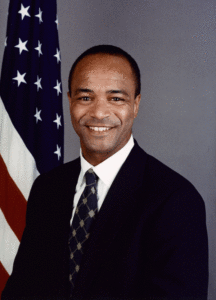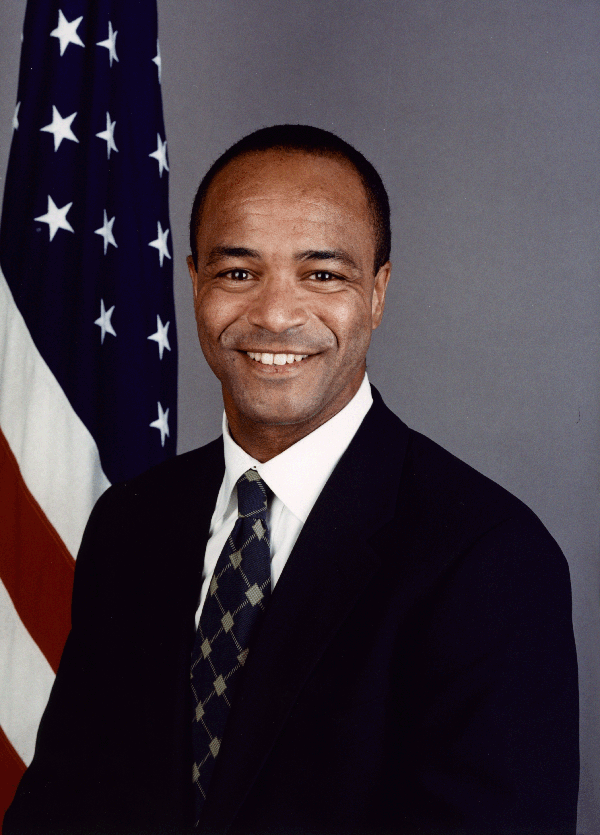
Pierre-Richard Prosper is an attorney and diplomat who turned his passion for the rule of law into a global pursuit for justice for victims of the worst crimes of humanity, and accountability for the perpetrators of those crimes.
Born in Denver, Colorado in 1963, Prosper was raised in New York by his Haitian emigrant parents, Drs. Jacques and Jeanine Prosper, both of whom were physicians. He received his bachelor of arts from Boston College (1955) and his doctorate from Pepperdine University School of Law (1989).
Prosper began his career at one of the most volatile and dangerous times in one of the largest American cities – Los Angeles, California. He served as deputy district attorney in the Los Angeles County District Attorney’s Office (1989–1994) with the responsibility of prosecuting gang-related homicides and other criminal activity in the gang-infested city of Compton. Also, just three years after taking this role, he found himself in the middle of prosecuting cases of violence and crime in Los Angeles County following the 1992 acquittal of four police officers for the beating of Rodney King.
Prospers would use these experiences in his next post, as assistant U.S. attorney for Central District of California (1994–1996) where he continued his work on violent crime issues, focusing then on investigating and prosecuting major international drug cartels.
Upon hearing about the acts of genocide in Rwanda where an estimated eight hundred thousand people were slaughtered over a one-hundred-day period, Prosper wanted help bring about justice for the victims. He left Los Angeles first to become a legal advisor to the U.S. government’s mission in Rwanda (1995), then as one of two trial attorneys, and later as a war crimes prosecutor for the United Nations (UN) International Criminal Tribunal for Rwanda (1996–1998). This was the tribunal established by the UN to bring the perpetrators of the genocide to justice. Here Prosper made a lasting mark on the international criminal justice system as he and his fellow prosecutor were responsible for getting sexual violence, particularly rape, classified as a war crime for the first time.
After Rwanda, Prosper returned to the United States and worked in the office of the assistant attorney general at the U.S. Department of Justice in the President Bill Clinton administration. In 1999 he joined the Clinton administration’s teams as special counsel and policy advisor to the Office of War Crimes, continuing on until 2001, under the Bush administration. President George W. Bush appointed Prosper as his ambassador-at-large for war crimes in May 2001, where his responsibilities, which became even more high-profile after the terrorist attacks of September 11, 2001, were to advise the secretary of state directly and formulate U.S. policy responses to atrocities committed in global conflict areas. He traveled to some of the most conflict-ridden regions of the world, and served as the president’s lead negotiator with other nations regarding U.S. nationals captured during combat in such places as Afghanistan and Iraq. He also served as the leading U.S. government voice at the activities of UN International Criminal Tribunals, including the Rwanda Tribunal and the tribunal for the former Yugoslavia as well as other high-profile efforts to bring major war crimes perpetrators to justice.
Ambassador Prosper left his post with Office of War Crimes in 2005 and returned to Southern California to private practice. He continues to advise governments and international agencies on international criminal law and war crimes.

